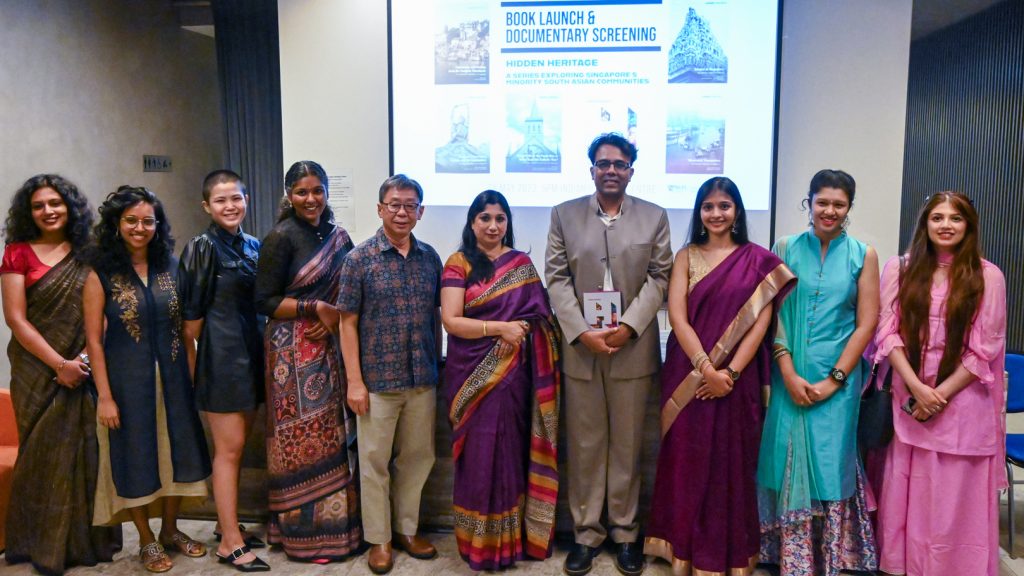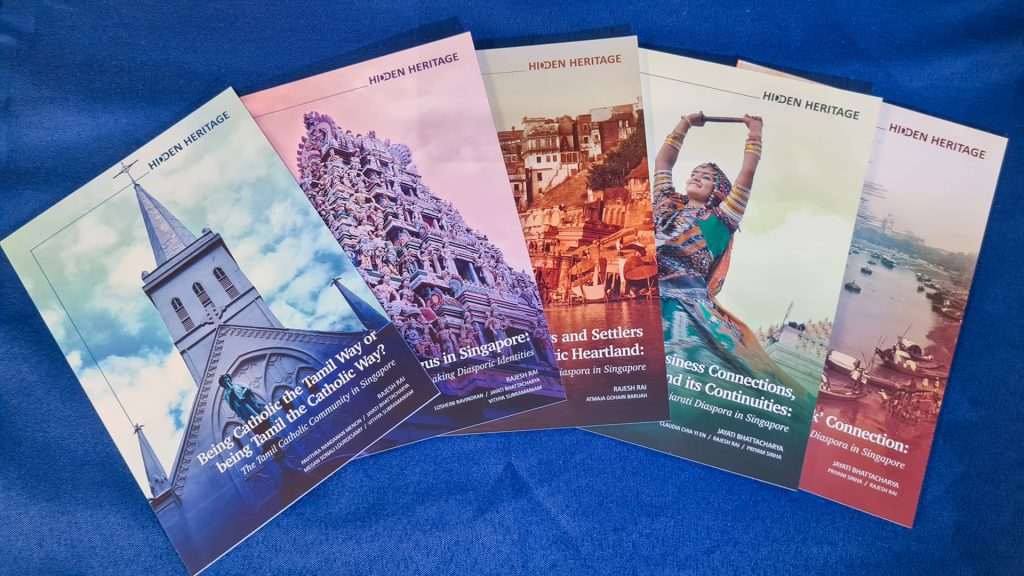Just Launched: Singapore’s South Asian Communities Book and Documentary Series
IN BRIEF | 8 min read
- The NUS Faculty of Arts and Social Sciences (FASS) showcased a series of books and short documentaries that focused on Singapore’s lesser-known South Asian communities at a book launch-cum-documentary screening at the Indian Heritage Centre on 28 May 2022.

The NUS Faculty of Arts and Social Sciences (FASS) showcased a series of books and short documentaries that focused on Singapore’s lesser-known South Asian communities at a book launch-cum-documentary screening at the Indian Heritage Centre today. Titled “Hidden Heritage: Minority South Asian Communities in Singapore”, the series shines a spotlight on the Bengali, Gujarati, Hindustani (the diaspora from the Gangetic Heartland), Tamil Catholic and Telugu communities.
An initiative of the NUS FASS South Asian Studies Programme, the series explores the everyday experiences of these communities and demonstrates the unique and shared historical trajectories and cultural values made while interacting with other ‘Indian’ and non-‘Indian’ communities in Singapore; sifting the intricate tapestry within the ‘Indian’ ethnic category to unveil the rich heritage of the diaspora. The South Asian communities were chosen for their unique social, historical and cultural characteristics and the series aims to share and shape popular discourse beyond flattened, homogenised imaginations that do not match the histories, learned heritage, or lived realities of many Singaporean ‘Indians’.
The list of five books are as follows (the five documentaries bear the same title):
- Sojourners and Settlers from the Gangetic Heartland: The Hindustani Diaspora in Singapore
- 'Bhadralok’ Connection: The Bengali Diaspora in Singapore
- Being Catholic the Tamil Way or Being Tamil the Catholic Way? The Tamil Catholic Community in Singapore
- Telugus in Singapore: Re-making Diasporic Identities
- Business Connections, Culture and its Continuities: The Gujarati Diaspora in Singapore

The project is led by Head of the Programme Associate Professor Rajesh Rai, and Senior Lecturer Dr Jayati Bhattacharya, with research and writing support from the Programme’s former and current students. It is supported by the Heritage Research Grant of the National Heritage Board.
Professor Tan Tai Yong, Chairman of the NUS Institute of South Asian Studies and Guest-of-Honour at the event, said, “The Hidden Heritage Series contributes to our understanding of lesser-known South Asian communities in Singapore. Collectively the books and documentaries raise awareness of the intricate tapestry of Singapore’s diverse multicultural society.”
Associate Professor Rajesh Rai added, “A fascinating aspect of this research has been in the unveiling of the immense contribution of these small communities in the historical development of Singapore. At the same time, these studies also draw attention to how their identities have transformed over time in the context of living in a global city.”
The event saw a panel discussion with the authors to introduce the series. This was followed by a screening of the documentaries. The event was attended by distinguished members of the local Indian community, guests from the Indian Heritage Centre and National Heritage Board, as well as representatives from FASS.
Book copies will be distributed to the National Library with the documentaries used as a teaching aid for NUS students. The Programme is planning to produce a second series that will focus on five other minority South Asian communities in two years’ time.
Click here for the synopses of the books and documentaries.
This article first appeared in NUSNews on 28 May 2022.

